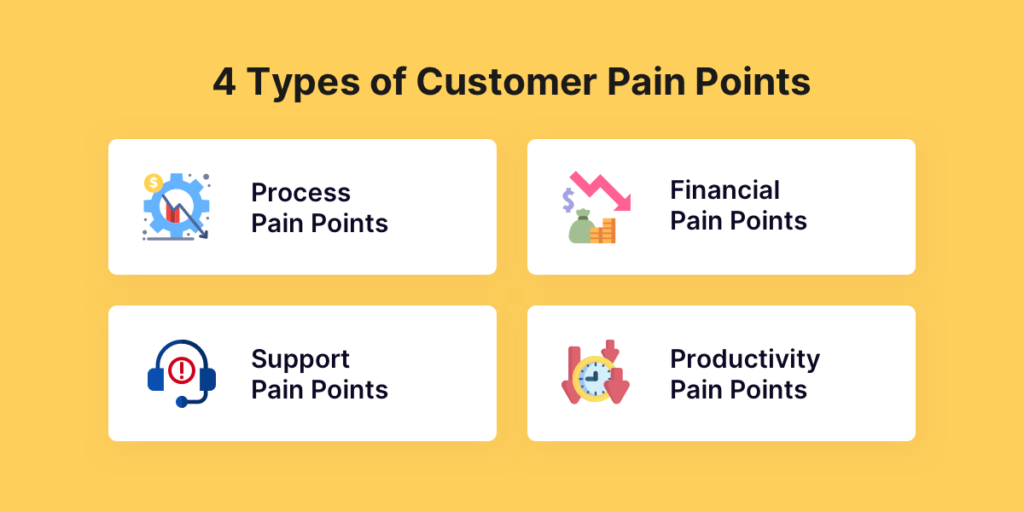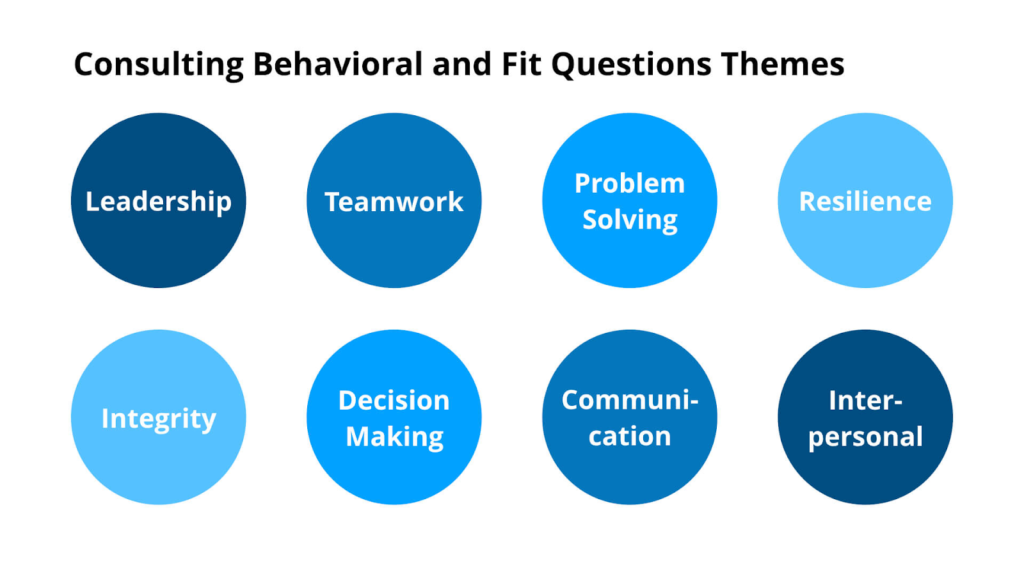12 Consulting Questions to Ask Clients to Identify their Pain Points

Table of Contents
- Pain Point Examples
- 12 Consulting Questions to Ask Clients
- Key Takeaways
- Conclusion
- FAQs
To market a product or a service, it is of utmost importance that you know your client’s or target audience’s pain points. To put it in simple words, pain points are recurring issues with a product or service that cause inconvenience to customers and businesses. They are unmet needs that are waiting to be met. Knowing these pain points can offer you an advantage during a one-on-one conversation with a potential client.
This blog will help you discover some of the most important marketing questions to ask clients to figure out their perspectives and expectations. Before we jump to the questions, let us look at some of the most common pain point examples.
Pain Point Examples
- Your client needs more services but has a limited budget.
- Communication gaps between different departments
- The client has asked you to perform many redundant tasks.
- Low morale among employees leading to low productivity

You might already relate to some of these examples or must have encountered at least one of them. Moving forward, let’s discuss some crucial questions to ask your client before starting with the project.
Consulting Questions to Ask Clients

1. What business challenges do you face?
Understanding your client’s business concerns is always the first step. You may not even necessarily ask, “What are your business challenges?” You’ll have to figure it out for yourself because they might not even know the answer. Therefore, consider an ‘outside-in’ approach to deal with the business-related challenges. Find out their business problems and then place the solution in front of them.
2. What do you want to prioritize?
Allow your client to explain their overall priorities and project – this will help you understand what the client expects and where the larger opportunity lies. For example, if your client has more than one project lined up, you’ll get an idea about how to map out your solution.
3. Who are the stakeholders?
This is one of the most crucial questions to ask your client. Knowing the answer to this early will help you understand whom to contact for approvals or discuss anything substantial. For example, if you will be working with multiple teams and each team has a different set of goals and priorities, you need to know that beforehand so that you don’t miss anything.
4. Who to reach out to during an economic setback?
Find out the answer to this as soon as it is feasible. Inquire with your prospective client about whose budget a purchase would come from and which teams would be involved in a purchasing decision. It’s pointless to waste time with someone who can’t close a transaction.
5. How do you measure your performance?
This is another essential client relationship question to ask. It will be quite helpful to know how your customer’s performance is being measured. Every deal demands the approval of the decision-maker. That decision-maker is held accountable for their actions, and they have a personal stake in the outcome. Individual pain is felt most acutely, so make sure you understand the performance metrics that your customer must meet.
6. What would you like to change about your business?
This type of probing question will make your client reflect inwardly. This usually evokes a natural response, which is where you should concentrate as a salesperson. Stop marketing and dive deeper to determine if your solution can realistically solve their problems. If it isn’t the case, move on to your next potential client.
7. How do you plan to enhance your growth?
While there are many ways to discover a client’s pain points, the best way is to have an open conversation and map out solutions accordingly. The motive behind this is to understand the strategies that your client has been working on to enhance their business growth.
8. What is the hardest part of your business?
Many clients in e-commerce face difficulties with shipping, cash on delivery, returns facility, customer relationship management, or order visibility. Asking them about the most challenging part of their business process will help you figure out the best solution or service you can offer to them.
9. What will the deadlines be?
This is another important question to ask your client. You must be aware of the deadlines that you will be working around. This would help you prioritize the tasks and allocate time to different things accordingly.
10. What do you expect from our solutions/services?
It is always good to be direct and honest with the potential client to build trust. Ask them directly about what they are and are not expecting from the solutions you provide them. The more information the client provides about what they want to gain and avoid, the better you will understand their pain points and be able to propose the best solutions.
11. What aspects of your job do you dislike the most?
Performance issues develop as a result of management’s actions or inactions. When you ask clients what part of their job they don’t enjoy or don’t like to work upon, you usually get an insight into an area they avoid or don’t perform well. You can find the root of their problems here.
12. Are you able to achieve your business goals?
This question can be asked in various other ways, too, like “What obstacles have you been facing in achieving your business goals?” or “What are the top three/five challenges you need to overcome for your business to grow?” This question allows the client to discuss their priorities, challenges, fears, downfalls, and progress. With this information, you can easily customize a solution for the client as per their needs.

Key Takeaways
- Ask the right questions to the right clients before taking on a project(s)
- Pain points are recurring issues with a product or service that cause inconvenience to customers and businesses.
- Common pain points include – a) Your client needs more services but has a limited budget; b) Communication gaps between different departments; c) The client has asked you to perform many redundant tasks. d) Low morale among employees leading to low productivity
- Understanding your client’s business concerns is always the first step to understanding their pain points.
- Ask questions to make your client introspect on how they want to change their business.
Conclusion
As you build trust with your client by carefully listening to their propositions, you must begin to personalize solutions as per their demand. If your product/solution serves many purposes, explain to them which characteristics of your product address their pain points.
We hope this detailed article on questions to ask clients will help you obtain maximum information from your prospect and prepare a presentation that fulfills your client’s criteria. It’s all about asking the correct questions to the right prospects.
FAQs
– Figure out who is your ideal client.
– Identify your USP
– Put yourself out there through your website or blog.
– Ask existing clients to refer you.
– Invest in advertising.
– Network in your ideal industry.
– Partner with other consultants.
A consultant needs to ask questions to get information on their clients’ industries, markets, and business problems.
A good consultant needs to be motivated, adapt well, be a team worker, and be a fast learner.
– Earn the client’s trust
– Understand how your services influence the brand
– Constantly educate yourself
– Conduct thorough research and ask questions
– Quote the right price for your services
Asking the right questions showcases your expertise as a consultant. It shows the client that you know what you are doing, are knowledgeable and are interested in addressing their pain points while working with them.
Latest Blogs
Learn how to rank on AI search engines like ChatGPT, Perplexity, and Gemini by optimizing your content for authority, structure, and relevance. Stay ahead in AI-driven search with this strategic guide.
Explore the best healthcare SEO services for your medical practice. Improve online visibility and effectively reach more patients in need of your services.
Discover top social media agencies specializing in banking solutions, enhancing financial services and driving engagement.
Get your hands on the latest news!
Similar Posts

Freelancing 101
5 mins read
11 Resources For Designers to Find Freelance Jobs Online

Freelancing 101
6 mins read
30 Freelance Industry Statistics to Get You Started

Freelancing 101
5 mins read